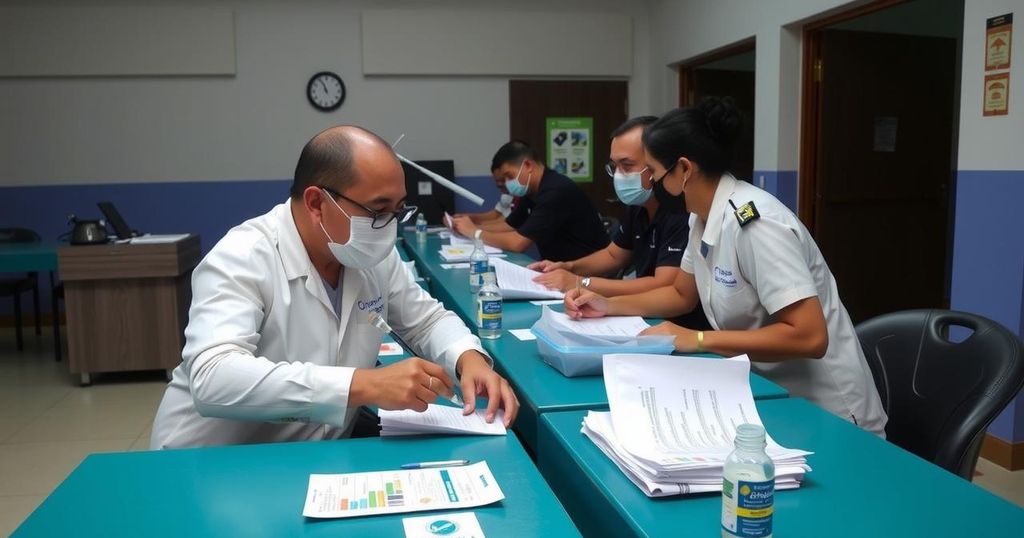Venezuelan Elections for Local Peace Judges: Strengthening Grassroots Democracy
On December 15, 2024, Venezuelans will vote to elect 30,000 communal peace judges, enhancing grassroots democracy. The elections, spanning 4,000 communal circuits, aim to promote local governance and conflict resolution. Eligible voters aged 15 and above will participate, with newly reformed laws outlining peace judges’ roles and responsibilities. Community engagement and localized knowledge are key aspects of this electoral process, reinforcing participatory governance.
On December 15, 2024, Venezuelans are set to participate in local elections aimed at selecting 30,000 communal peace judges, a move designed to bolster grassroots democracy across the nation. The elections will unfold in over 4,000 communal circuits, including 481 indigenous populations, as voters choose from a pool of 52,288 candidates. This initiative seeks to enhance the direct involvement of citizens in governance, reflecting a shift towards more localized decision-making processes.
Eligible voters, aged 15 and older, will cast their ballots across 4,817 polling stations managed by community electoral commissions. President Nicolás Maduro has encouraged participation, highlighting the elections as pivotal to developing a more authentic democracy that transcends traditional representative systems. “What we are undertaking is a significant step toward the future—a genuine democracy that goes beyond superficial representation,” stated President Maduro during a recent community assembly.
The elected peace judges will play a crucial role in promoting peaceful coexistence and addressing local conflicts. The newly reformed “Organic Law of Communal Peace Justice” outlines their authority, allowing them to mediate various disputes, including tenancy, child support, and neighborhood issues, while excluding property disputes over sums exceeding 1,000 euros. Candidates have engaged in extensive door-to-door campaigning to explain their platforms and build community trust.
The emphasis on local knowledge in the selection process aims to install peace judges who are familiar with their community’s unique circumstances and needs. This electoral strategy is part of a broader governmental effort to enhance community-led initiatives and reaffirm the importance of local governance.
In preparation for their roles, successful candidates will undergo a six-month training program managed by judicial authorities and the Ministry of Communes. This initiative is particularly significant in light of previous community consultations, where citizens selected local projects for funding, further illustrating the government’s commitment to decentralizing authority and fostering participatory governance.
Venezuela is in the midst of initiatives to further democratize governance through local elections that empower communities. The introduction of communal peace judges is a response to the need for localized conflict resolution mechanisms, acknowledging that traditional judicial systems may not always suit community needs. These elections emerge from a historical context of participatory democracy advocated by the Bolivarian Revolution, aiming to strengthen grassroots governance through elected representatives who understand local issues.
The upcoming election for communal peace judges in Venezuela represents a significant attempt to enhance grassroots democracy and engage citizens directly in local governance. By empowering communities to elect their own representatives capable of addressing disputes, the initiative seeks to foster greater social cohesion and local autonomy. The training and responsibilities assigned to these judges underscore a shift towards a more participatory political landscape in Venezuela.
Original Source: venezuelanalysis.com




Post Comment